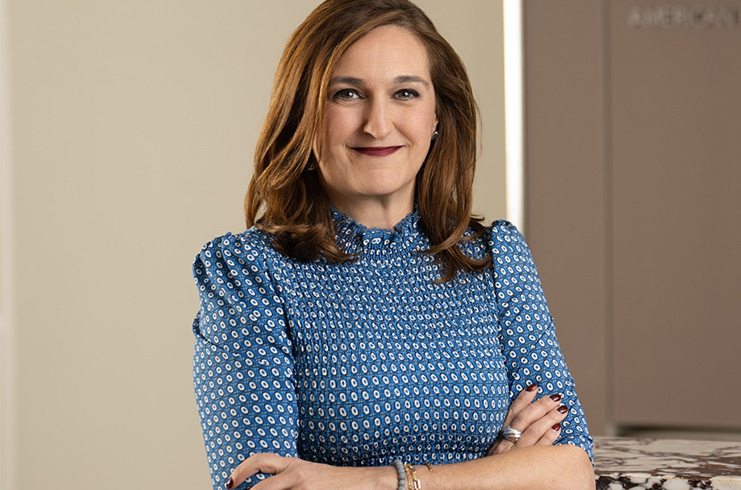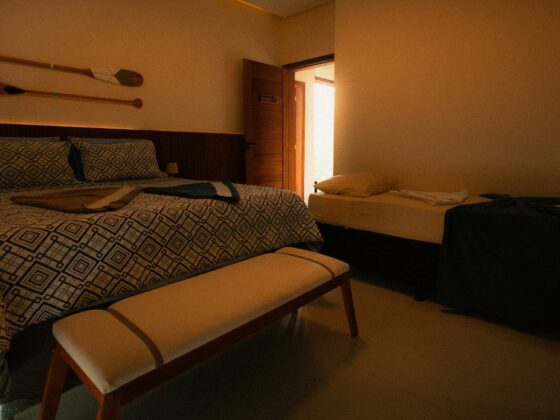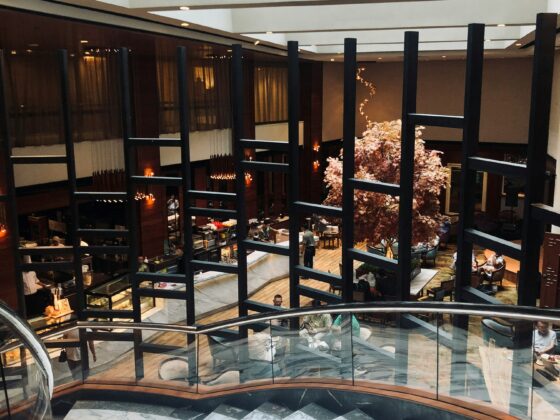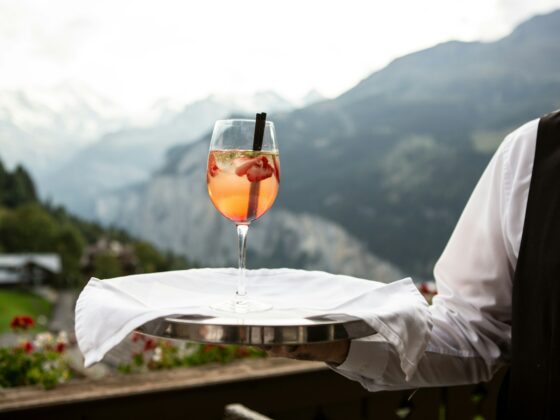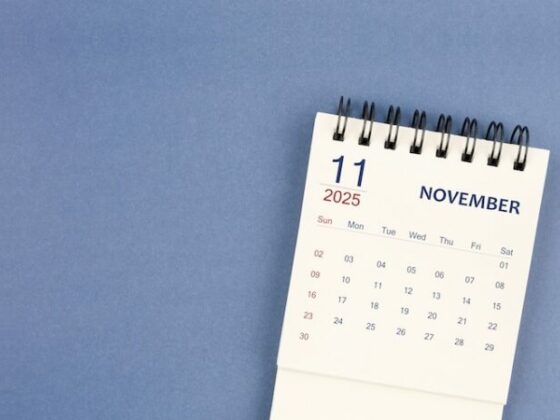
Almost every hotel today has access to or can easily get access to sophisticated pricing algorithms, innovative marketing campaigns, and revenue management tools. The barrier to entry is lower than it has ever been, and there are smart people available for hire to help you utilize these tools. So why are we seeing so many hotels struggle to maintain sustainable commercial success?
The answer lies in hotel operations. Specifically, I want to single out General Managers. It’s time to acknowledge that the right GM plays a crucial role in making sure your hotel revenue goals are achieved. In fact, you can’t really succeed today without a good one.
Operational excellence is now the holy grail of hotel commercial optimization. Finding and retaining a great hotel General Manager is more crucial today than every before. They are the bridge between commercial ambition and operational execution. Yes, they are the ones who can make all your dreams of commercial success come true. But only if you involve them in your decision-making and empower them to help with implementation.
GM = Hotel Profit Symphony Conductor
Commercial optimization encompasses the entire guest journey. Revenue generation is not an isolated function that some nerds will make happen for you using Microsoft Excel. It has to be backed by a great product, which is the guest experience. Every touchpoint influences both immediate revenue and long-term profitability.
This article is for any hotel owners or asset managers who are struggling today and wondering why their commercial optimization efforts are not delivering the stellar growth they were seeing in years past. The first question to ask yourself is…who is leading your hotel team?
Your GM is the conductor of your hotel profit orchestra. No matter how good the individual artists are, a conductor brings them all together into a perfect symphony. Short-term commercial success is a flash in the pan. For profits to be sustainable, there needs to be a balance among guest satisfaction, operational efficiency, and overall financial performance.
After decades in commercial optimization, I have learned this important lesson:
The right GM can make even a mediocre commercial strategy deliver stellar results.
The wrong GM can turn a brilliant commercial strategy into a revenue nightmare.
I am very fortunate to have worked with great GM’s who have made my commercial optimization work incredibly successful.
The Revenue Management Reality Check
I am old enough to remember when Revenue Management was something new and shiny, that only a few elites had access to. It is now more sophisticated and accessible than ever. Hotels today have amazing access to incredible tools capable of processing vast amounts of market data, competitor intelligence, historical performance metrics, etc. Oh, and let’s not forget that everyone’s software is powered by a magical AI unicorn, churning out rate recommendations and insights with rainbows, sparkles and sunshine! But, your magical RM system, with the best RM team behind it, is only going to be as effective as your hotel operations team’s ability to deliver on the value proposition you have sold to your guests.
Let’s look at a typical scenario where the RM system/team has identified an opportunity to increase rates during a high-demand period. Here is how it typically unfolds:
- Revenue Management System calculates the optimal price point based on market conditions and competitive positioning.
- Recommendations are approved and implemented.
- Hotel expects solid revenue performance.
Unfortunately, the outcome is not based on revenue management magic, but on operational implications. Here are some specific issues that can quickly derail the price increase:
- Housekeeping department is understaffed and cannot maintain room quality standards.
- Front desk lacks the training to handle higher guest expectations.
- Food and beverage operations cannot accommodate higher service levels.
Revenue opportunity + Operational Issues = Reputational Liability
This is the trap a lot of hotels fell into post pandemic. For a while, no matter what hotels did, traveler demand and appetites seemed to be unlimited. But those days are now behind us. Current and future demand forecasts are not looking so hot right now. There is no room for operational error in today’s marketplace. Let’s look at some examples.
Case Study: March 2025 Compression Event
The Revenue Strategy:
A 185-room urban hotel’s revenue management team identified increased demand during a citywide event in March 2025. The system recommended increasing rates from $189 to $279 per night—a 48% premium justified by competitive analysis and historical patterns. The revenue team executed the strategy, and occupancy remained strong at 94%.
The Problem:
The operations team wasn’t properly briefed about readiness requirements.
The Fallout:
- Housekeeping (already at capacity) couldn’t handle increased turnover.
- Room cleaning times jumped from 28 to 42 minutes, creating a cascade of late check-ins.
- By 3pm on compression day, over 40 guests waited in the lobby for unavailable rooms.
- The front desk, unprepared for the volume of upset, premium-paying guests, struggled to manage expectations, handle bags, etc.
- Within 48 hours, 14 scathing negative reviews appeared, many from repeat business travelers vowing never to return.
- The $84 RevPAR increase quickly eroded. There was a 15% decline in repeat bookings over the following quarter, plus 20% higher customer acquisition costs to replace lost guests.
As you can see, a hotel operations disconnect triggers a vicious cycle of declining satisfaction, reduced pricing power, and diminished revenue performance. Only hotels with empowered GMs can count on operational support for the elevated expectations that come with premium pricing. Owners and asset managers who fail to involve their GMs in pricing strategy create the conditions for the really painful meetings that destroy team morale and productivity.
The Marketing Mirage
Marketing’s role in driving hotel revenue has expanded dramatically with the proliferation of digital channels and sophisticated targeting capabilities. As with revenue management, the access to marketing tools and talent is pretty democratic today. Why are so many hotel marketing campaigns falling flat?
Failure is usually a result of guest experiences in the real world not matching the hype that was created online. Marketing effectiveness ultimately depends on the property’s ability to deliver on its promises. Every marketing message creates expectations in the minds of potential guests. When the operational reality fails to match these expectations, marketing becomes counterproductive.
A beautiful website showcasing luxurious amenities means nothing if those amenities are poorly maintained. Social media campaigns highlighting exceptional service fall flat when staff members are inadequately trained or overwhelmed due to staffing issues. Let’s look at another real-world example.
Case Study: The Craft Cocktail & Artisanal Breakfast Catastrophe
The Campaign:
A boutique hotel invested in a comprehensive digital marketing campaign emphasizing its craft cocktail lounge and artisanal breakfast experience, featuring stunning photography, influencer partnerships, and targeted advertising.
The Problem:
The GM was not consulted on the hotel’s operational capabilities in F&B.
The Breakdown:
- The “cocktail lounge” was a small bar that only had room for one bartender.
- The bar staff knew just five specialty drinks and became overwhelmed during peak hours, creating 20-minute waits for simple drink orders.
- The “artisanal breakfast” relied on one pastry chef, who called in sick twice in the campaign’s first week, forcing the kitchen to serve pre-packaged pastries that looked nothing like the photograhpy in the campaign.
- Guests who booked for these specific amenities left scathing reviews.
- One viral TikTok showing a croissant with the caption “expectation vs reality” garnered 340,000 views, triggering immediate booking cancellations.
- Online ratings dropped from 4.7 to 3.8 stars within two weeks, requiring six months of operational improvements and expensive reputation management to recover.
The most sophisticated marketing campaigns cannot overcome operational inconsistencies. Effective marketing can actually exacerbate operational problems by creating false expectations and attracting guests who might otherwise choose properties better aligned with what they are looking for. This situation creates an insidious problem where marketing success leads to operational failure, ultimately damaging reputation and long-term commercial prospects.
Good General Managers serve as the crucial link between marketing promises and operational delivery. They understand their operational capabilities and limitations, and must be consulted to ensure that marketing messages align with realistic service levels. Even better, they can elevate operational standards to support ambitious marketing positioning that drives better commercial results.
Operational Excellence Is Your Commercial Foundation
Operational excellence in hospitality extends far beyond basic service delivery. It encompasses the systematic optimization of processes, the consistent execution of standards, and the continuous improvement of guest experience touchpoints. When achieved, operational excellence becomes a powerful commercial differentiator enabling hotels to command premium pricing, generate positive word-of-mouth marketing, and build the kind of guest loyalty that drives long-term profitability.
The hotel GM orchestrates all the components of operational excellence, laying the foundation for your hotel’s commercial success. Here is a great example of a GM driving revenues for an airport hotel.
Success Story: Airport Hotel Transformation
The Strategy:
A full-service airport hotel’s GM implemented a comprehensive operational excellence program focusing on three areas: housekeeping quality, food service consistency, and front desk efficiency.
Actions Taken:
- Housekeeping: Introduced a 30-point inspection checklist and improved supervisor ratio from 1:22 to 1:15, ensuring consistent room presentation
- Food Service: Standardized recipes, implemented prep schedules, and cross-trained staff to handle volume fluctuations
- Front Desk: Created a training program and implemented a “green light” system during peak check-ins, incentivizing upgrades and empowering staff to offer compensation when issues arose
The Investment:
- Six months for implementation
- $180,000 for training, additional labor, and process refinement
The Results:
- Online review score increased from 3.9 to 4.5 stars, placing the hotel in the top 15% of its competitive set.
- Improved reputation enabled a $22 ADR increase, generating an additional $1.4 million in annual revenue.
- Direct booking conversion rates jumped from 2.8% to 4.1% as potential guests gained confidence from reviews.
- Corporate negotiated rates improved 8% during renewals as satisfaction scores exceeded contractual thresholds.
- Repeat guest percentage increased from 24% to 37%, reducing customer acquisition costs by approximately $120,000 annually.
The operational excellence investment paid for itself within six weeks!
Operational excellence directly enables commercial flexibility. Properties with strong operational foundations can quickly capitalize on revenue opportunities—whether adjusting service levels to support premium pricing, or rapidly scaling to accommodate increased demand. This flexibility proves particularly valuable in dynamic market conditions where rapid adaptation will provide a significant competitive advantage.
The GM’s Indispensable Role
Great GMs align diverse teams to meet common objectives, while maintaining focus on both short-term performance and long-term sustainability. I have seen the greats in action as they set clear performance expectations, create accountability systems, and foster a culture of commercial awareness throughout the hotel organization. They develop team members who understand the connection between daily responsibilities and commercial outcomes.
A great GM once shared that she wanted her key departments to understand and join the revenue mission. For example:
- Housekeeping staff should understand how room presentation affects pricing power, and how their work drives guest satisfaction and revenue.
- Front Desk should appreciate the revenue impact of upselling and fixing problems before they escalate. As the first point of contact, their enthusiasm sets the tone for the entire hotel experience.
- Food service teams should recognize how much their performance influences guest satisfaction and repeat business.
Artificial intelligence, machine learning, and automation promise to revolutionize everything from pricing strategies to guest service delivery. However, even the most sophisticated technology implementations will require human expertise to achieve optimal results. General managers play a crucial role in this technology-human synthesis by ensuring technological tools enhance rather than replace human judgment. Good GMs already understand automated systems’ limitations and can intervene when circumstances require flexibility beyond programmed parameters.
Conclusion
The hotel industry stands at a crossroads. Technology has democratized access to sophisticated revenue management and marketing tools. Operational excellence has once again become the top competitive differentiator—and gives the general manager the power to achieve the ultimate competitive advantage.
The uncomfortable truth is this: You can hire the best revenue managers, deploy cutting-edge technology, and craft brilliant marketing campaigns. But without an empowered GM driving operational excellence, you’re building a commercial strategy on quicksand. Hotels today don’t fail because they lack access to technology or market data. They fail because operational execution can’t support their commercial ambition.


